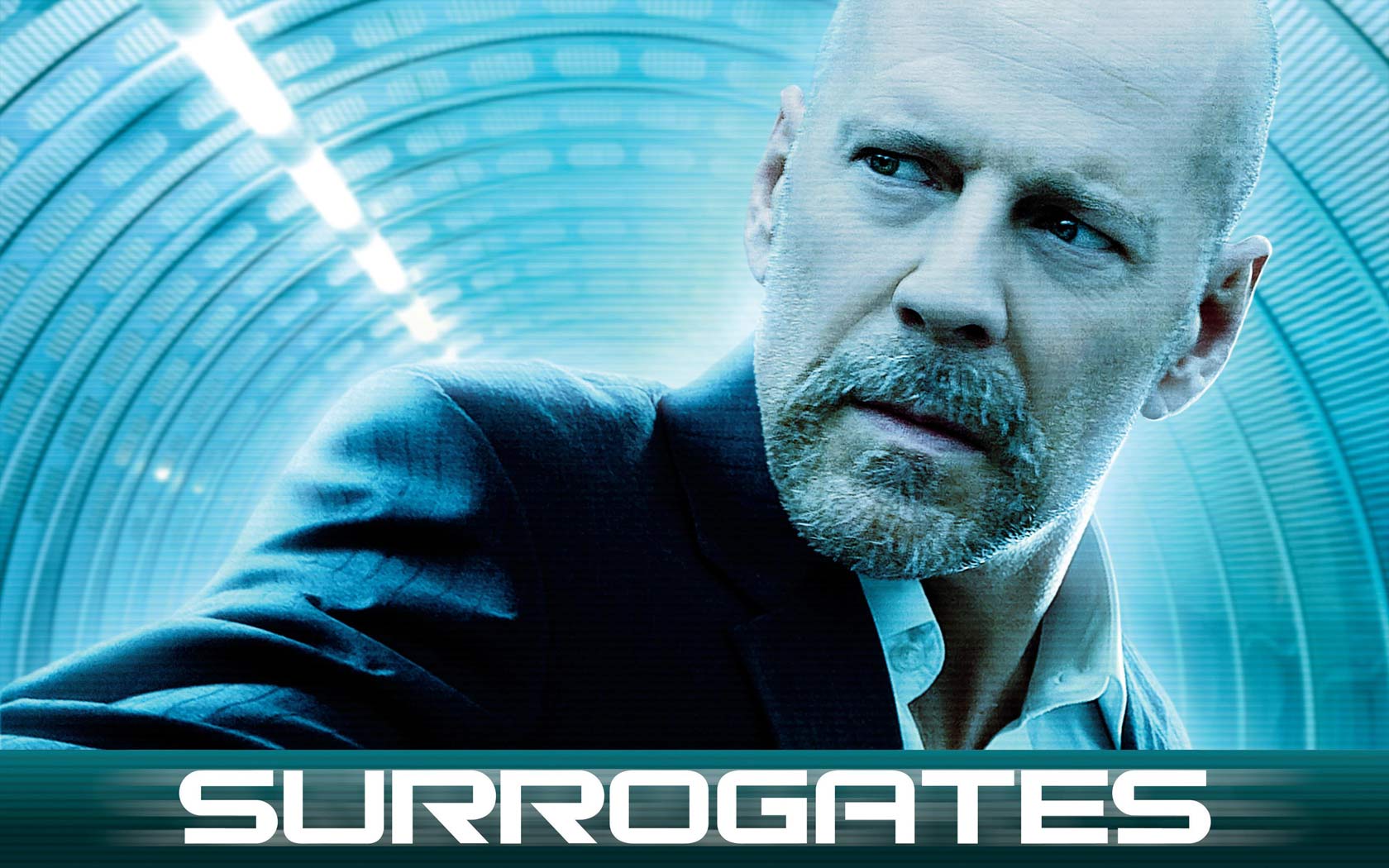“Surrogates” is a film that believes it can make up for its lack of uniqueness with an abundance of standard Hollywood formula.
The same genre shtick that has been seen in all thriller/detective and futuristic/robot films is present in director Jonathan Mostow’s new film. With everything present so formulaic, the reason why this film manages to attain an average entertainment threshold is due to an interesting combination of the thriller and science fiction genre. Although we have all seen cops who are suspended from the force for reckless endangerment, we have yet to see a cop who is suspended and then involved in a conspiracy that involves robots.
“Surrogates” revolves around Detective Tom Greer (Bruce Willis) who is finally beginning to feel the effects of living in a Utopia where human beings live through electronic puppets called surrogates. Science and its effects on humanity has been a discussion that has been going on in film for years, and “Surrogates” follows in the same tradition.
The movie feels like a recapitulation of themes that have been better said through earlier, more groundbreaking films such as “2001: Space Odyssey” and “The Matrix.” Further more, “Surrogates” relies on plot points and twists that are cliché and predictable within the thriller genre. The film moves smoothly and manages to maintain interest until the second half. As the plot begins to unfold, the clichés and predictability begin to manifest.
Luckily, “Surrogates” does not place complete stock in the intrigue of the thriller genre and manages to provide other substantial components to its story. “Surrogates” also does not overstay its welcome. The film totals only 88 minutes, which is just enough time to keep the audience from becoming bored with its evident formula.
With its various plot elements, “Surrogates” manages to be a science fiction film, a thriller, and a domestic drama all bundle into one futuristic package. The relationship between Greer and his wife, Maggie, is a driving force of the film and their tumultuous marriage problems crop their way into the main plot of the film and without feeling intrusive or awkward. The relationship between Greer and Maggie is completely organic and becomes a vital component to the makeup of the film. “Surrogates” may be formulaic in its plot points but the relationships between important characters are genuine, interesting, and engaging.
Believability is vital aspect of “Surrogates,” with many of the actors portraying human beings as well as their robotic counterparts. The subtle differences between Greer’s, along with the rest of the cast’s, facial expressions and body movements as a human and as a surrogate are noticeable. Willis provides a compelling and emotional character that is relatable and understandable but at times tends to teeter on the brink of melodrama.
The score of the film is blatantly melodramatic and when this is coupled with the occasional bad, expository dialogue it creates noticeably exaggerated moments that are difficult to suffer through. There are times when Greer speaks so candidly, usually to his wife, that it is difficult to take the scene and performance seriously. These moments are not often but there are enough of them to warrant mention.
The melodrama of “Surrogates” is not merely restricted to Willis’ performance but also extends to James Cromwell. Both Willis and Cromwell are very talented actors but shabby direction and scoring may be reason their performances occasionally fall flat.
“Surrogates” manages to entertain but the overall product is an average film. There is not anything spectacular about this film but there is also nothing too awful. If “Surrogates” had been the first futuristic science-fiction film of its time, it would bare some relevancy and some merit, but this film has been done so many times that it falls on deaf ears. The film hardly exceeds any expectations and delivers exactly what the previews have suggested: a combination of every science fiction hit of the last twelve years.







